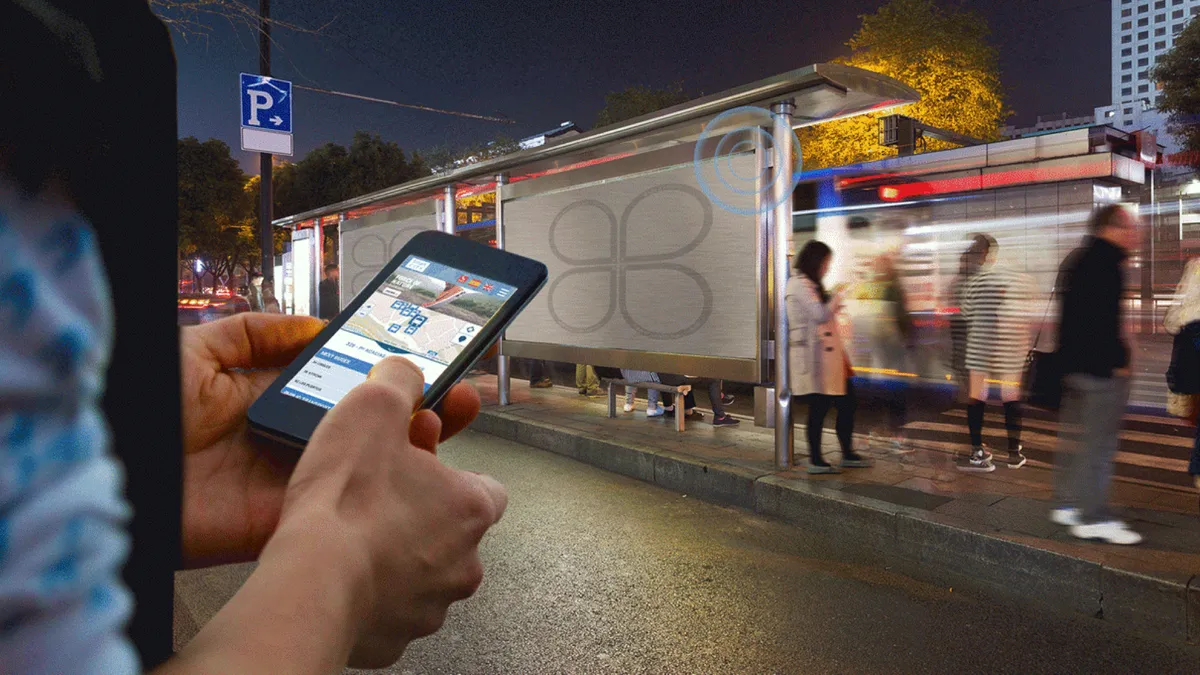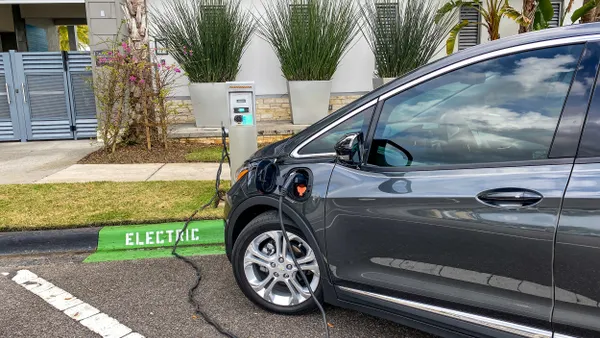UPDATE, July 24, 2018: Connecthings has gathered results of its accessibility pilot for blind and visually impaired riders of public transit in Austin, TX. The pilot, which ran from March 12 through May 25, installed connected infrastructure at 15 bus stops in Downtown Austin, allowing testers to use an app that guided them to a bus stop and announced bus arrival times, service alerts and information.
Of the ten pilot testers, eight declared that the service improved their bus riding experience. Nine said it was easy to know when the bus was coming, while seven said they were easily guided to a bus stop.
Connecthings' pilot program also won a mobility award from the Le Monde - Smart Cities summit.
Dive Brief:
- A pilot program in Austin will provide information on real-time bus schedules and alerts to blind and visually impaired riders. Urban technology company Connecthings partnered with bus agency Capital Metro to provide a network of beacons at 15 downtown bus stops that connect to BlindSquare, an app with GPS for the blind or partially sighted.
- Through the app, riders will get real-time updates automatically when they're in proximity to a stop, from beacons connected via Bluetooth. The pilot program, for a select number of "beta-riders" that use BlindSquare every day, will last for 60 days.
- In a statement, Connecthings CEO Laetitia Gazel Anthoine said the partnership will break down "key communication barriers that can inhibit the lives of those who are, in this case, visually impaired."
Dive Insight:
As cities become smarter and more reliant on technology, more people are thinking about ways to ensure these innovations don’t leave people behind. Earlier this month, Microsoft released Soundscape, a free app that gives blind and visually-impaired people 3-D audio cues to help them navigate through cities, while ride-hailing app Lyft partnered with assistive community Aira to make its service more accessible to visually impaired riders.
Through this latest use of technology, Austin and its partners in the private sector are similarly looking to use smart city advances to help disabled residents and make their lives easier. "We push back on the void of darkness, replacing it with the illumination of information – daily," BlindSquare CEO Ilkka Pirttimaa said in a statement, noting the technology would "close the void for riders in Austin who are blind."
Also of note in this scheme, the real-time updates that blind and visually impaired riders receive on BlindSquare through the Bluetooth beacons will be available to all other riders via push notifications. So while this technology is clearly aimed at some disabled riders, its benefits could be far-reaching if the pilot program becomes permanent.












